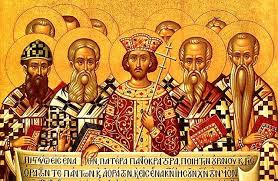The development of Christian doctrine in the early Church marks a pivotal phase in the articulation and clarification of core beliefs and theological concepts. Shaped by the teachings of Jesus Christ, the apostles, and the guidance of the Holy Spirit, early Christian leaders grappled with theological questions and controversies that arose within the fledgling faith community. In this article, we embark on a journey through history to explore the evolution of Christian doctrine, grounded in scriptural references and historical insights.
- The Apostolic Foundation
The foundation of Christian doctrine rests upon the teachings of Jesus Christ and the apostles as recorded in the New Testament. Jesus’ own words, such as the Sermon on the Mount (Matthew 5-7) and the Great Commission (Matthew 28:19-20), provided the framework for Christian ethics, mission, and theology. The apostles, guided by the Holy Spirit, continued to expound upon these teachings and interpret their significance for the burgeoning Christian community (Acts 2:42).
- Councils and Creeds
As the early Church expanded and encountered theological challenges, leaders convened councils to address doctrinal disputes and establish orthodox beliefs. The Council of Nicaea in 325 AD, for example, formulated the Nicene Creed to affirm the divinity of Christ in response to the Arian heresy. The Council of Chalcedon in 451 AD articulated the doctrine of Christ’s two natures, fully human and fully divine, in response to Monophysitism. These creeds, rooted in Scripture and apostolic tradition, provided a standard of faith and unity for the Church.
- Patristic Theology
The writings of the early Church fathers, known as patristic literature, played a crucial role in the development of Christian doctrine. Figures such as Ignatius of Antioch, Irenaeus, Origen, and Augustine engaged with philosophical, theological, and cultural currents of their time to articulate and defend orthodox Christian beliefs. Their theological insights, grounded in Scripture and tradition, continue to shape Christian thought and practice to this day.
- Scriptural Interpretation
The early Church engaged in rigorous scriptural interpretation to discern the meaning and application of biblical texts to contemporary issues and theological debates. Figures like Origen and Augustine employed allegorical, typological, and moral interpretations of Scripture to uncover deeper spiritual truths and ethical imperatives. By exegeting and applying the teachings of Jesus and the apostles, early Christians also sought to maintain doctrinal fidelity and spiritual integrity.
- Continuity and Development
While the early Church confronted new challenges and controversies, it remained steadfast in its commitment to the apostolic faith delivered once for all to the saints (Jude 1:3). The development of Christian doctrine was not a departure from Scripture or tradition but a dynamic process of deepening understanding and faithful application of divine revelation. By upholding the authority of Scripture and the guidance of the Holy Spirit, the early Church navigated theological complexities and preserved the integrity of the Christian faith.
Conclusion
The development of Christian doctrine in the early Church exemplifies the ongoing work of the Holy Spirit in guiding believers into all truth (John 16:13). Grounded in Scripture, apostolic tradition, and the witness of the early Church fathers, Christian doctrine continues to evolve and adapt to contemporary contexts while remaining faithful to the timeless truths of the Gospel. As we study the history of Christian doctrine, may we also be inspired to deepen our understanding of the faith and engage with theological questions with humility, wisdom, and discernment.
We at Wordembassyare highly regarded to be a significant affiliate for great products. As a result, we are paid a commission if you use one of these links to purchase a membership. You don’t, however, have to pay more for this. You may relax knowing that the information given here is reliable and accurate.






